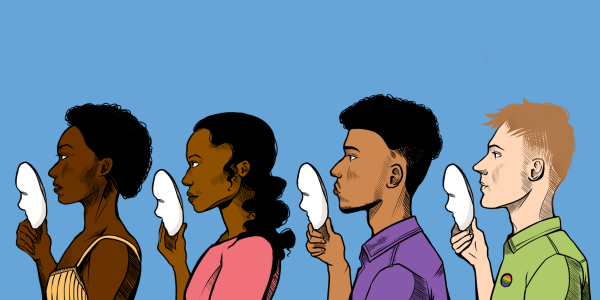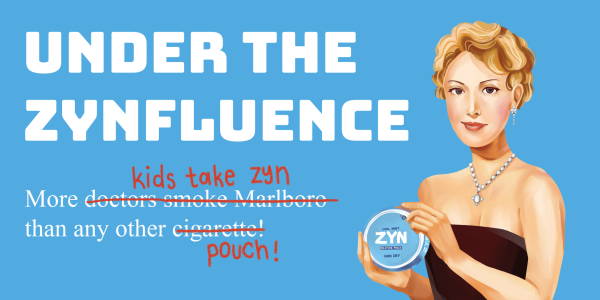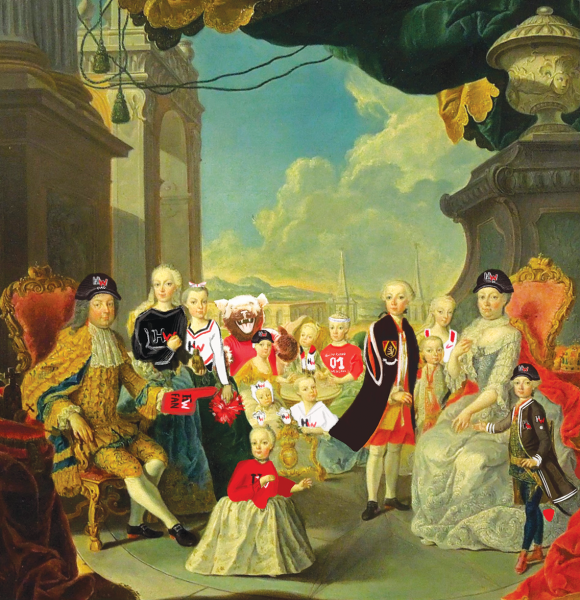Leading Ladies: women take initiative on campus
Students and administrators react to the recent increase in female leadership in several activities on campus.
August 30, 2021
Two single-sex schools came together in a long-anticipated merger to form a single coed institution in September 1991. Thirty years later, at 3:40 p.m. on Tuesday, April 20, an email addressed to the student body announced the results of the Head Prefect election: Quincey Dern ’22 and Jade Stanford ’22 won, making history as the first two women to serve as Head Prefects together. One month later, The Chronicle announced Tessa Augsberger ’22 and Milla Ben-Ezra ’22 as its new Editors-in-Chief, followed with the appointment of Violet Barron ’22 and Paris Little ’22 as the Editors-in-Chief of Vox Populi.
An article published by The Chronicle in 2015 reported an undercurrent of ingrained sexism within the student body, citing unchecked microaggressions like sexual assault jokes and stereotypical “play like a girl” comments, alongside negative responses to anti-sexism speakers. Now, the upcoming school year sees young women occupying many student leadership positions.
Previously, Prefect Elections were strictly coed
The school’s progress toward gender equality began with its aforementioned merger, which President Rick Commons said he witnessed firsthand as a former teacher.
“The [students at] The Westlake School [for Girls] did not think it was a good idea,” Commons said, “There was a sense, back when our school became Harvard-Westlake, that the boys school had in some way overtaken the girls school.” To dispel this growing concern, the administration required that there be coed heads for the Prefect Council and other student-run groups.
Upper School Dean Nia Kilgore recalled her first day interviewing at the school, when she saw an election underway. She said she was confused at the fact that a boy and girl were required to win and described the administrations’ explanations.
“The assumption was [the boys were] going to be in-your-face leaders,” Kilgore said. “They didn’t want to silence the girls’ voices from Westlake. They wanted to make sure the girls had an equal voice.”
Kilgore recognized the rule’s importance at the time of the merger, when the student bodies of Harvard and Westlake stood divided, but said the rule was antiquated by the 2010s.
“Are we saying that we don’t trust students to elect the best candidate?” Kilgore said. “We’re trying to teach kids democracy. You go into a booth and you vote for who you think should win. If two cisgender boys win, that should be fine. If two girls win, that should [also] be fine.”
Soon after being hired, Kilgore shared these concerns with the administration. With the added initiative of Head Prefect Ryan Stanford ’19, the rules were changed and gender was removed entirely from consideration in the Head Prefect election process.
The new mandate was fully realized by Dern and Stanford’s appointment in 2021. Senior Prefect and Asian Students in Action (ASiA) leader Joy Ho ’22 said the outcome of the election was a result of the shifting social climate.
Students and faculty ponder other factors in the Prefect Election’s outcome
“I think there just has been an overall push for equality,” Ho said. “The Black Lives Matter protests gave cause to a lot of other movements to start getting momentum, and I think at Harvard-Westlake, the school became really focused on pushing these initiatives to make sure that they were equal.”
In contrast, Kilgore said she believed the results to be unaffected by outside sources and exclusively connected the victory to the merit of the Prefect Council candidates.
Junior Prefect Yoshimi Kimura ’23 proposed a third hypothesis that is independent of the social climate and merit-based arguments.
“This year, there has been increased transparency about the rules of the election, [and] that might be just because they’re communicating more thoroughly online,” Kimura said. “This year, I heard a lot of my classmates saying, ‘Oh, I didn’t know that we could vote two girls in.’”
Leaders address lack of male participation
Among other student organizations, though, there is more consensus surrounding the cause for female appointments, with many of the leaders exclusively citing the lack of male participation in their groups.
Ho said she believes it was the sensitive nature of her club’s subject material as well as the limitations imposed by pandemic that attracted more young women than men to join the group.
“ASiA became a very [female]-based club,” Ho said. “[In having] these discussions [and] these open conversations online, I think a lot of females are [now] more willing to be vulnerable.”
Vox Populi Editor-in-Chief Barron sad she attributes the leadership appointments of her publication to the estimated gender breakup of the staff.
“There have been all-female EIC’s going back years,” Barron said. “I think most years, the class will be 95%, if not 99%, female.”
Rhea Madhogarhia ’22 said she thinks girls feel they have more to prove, which she believes sparks their disproportionate levels of participation in student organizations.
“I feel like the girls are just more willing. Maybe we feel like we have something to prove. Guys don’t feel the need to be part of something else to feel like a part of the community,” Madhogarhia said. “They’re comfortable in their own groups.”
Kimura echoed Madhogarhia’s thoughts regarding the gender culture at the school.
“I think [girls] feel [the] need to excel in everything that we do,” Kimura said. “ If we don’t, it sort of feels like we’re not pushing for progress. I think that’s a big reason why women get generalized so often. They’re trying so hard to be a shining example of one thing.”
Community reflects upon the schools current standing in gender equality
Despite the stress she said it created, Kimura explained that she thinks the pressurized environment is the most prominent factor in pushing them into leadership. While Kimura said this environment may be perpetuated by men, Senior Prefect Jason Thompson ’22 said he supports the dynamic it has created.
Thompson praised his classmates on Prefect Council and said that he recognized the significance of their victory.
“I was just so excited for what they accomplished,” Thompson said. “Prefect Council is going to be in amazing hands. If it were up to me, there’d be a picture of [Stanford and Dern] at convocation on the front of the [Los Angeles (LA)] Times.”
Though Kilgore said she shared Thompson’s excitement, she acknowledged there are more goals to be achieved. Still, she said she is optimistic these goals will be achieved.
“We’re definitely behind [the curve],” Kilgore said. “But you’ve grown up in an era where you have seen these improvements in gender equality, even if they’ve been slow. Clearly, something’s not perfect. But are we actually doing it poorly? No, and I think this year’s [leadership] is a great sign.”









































